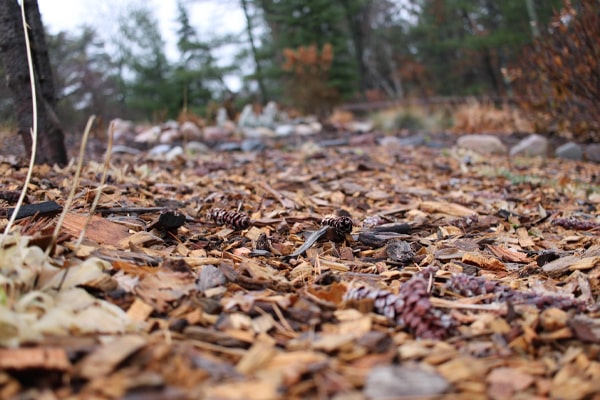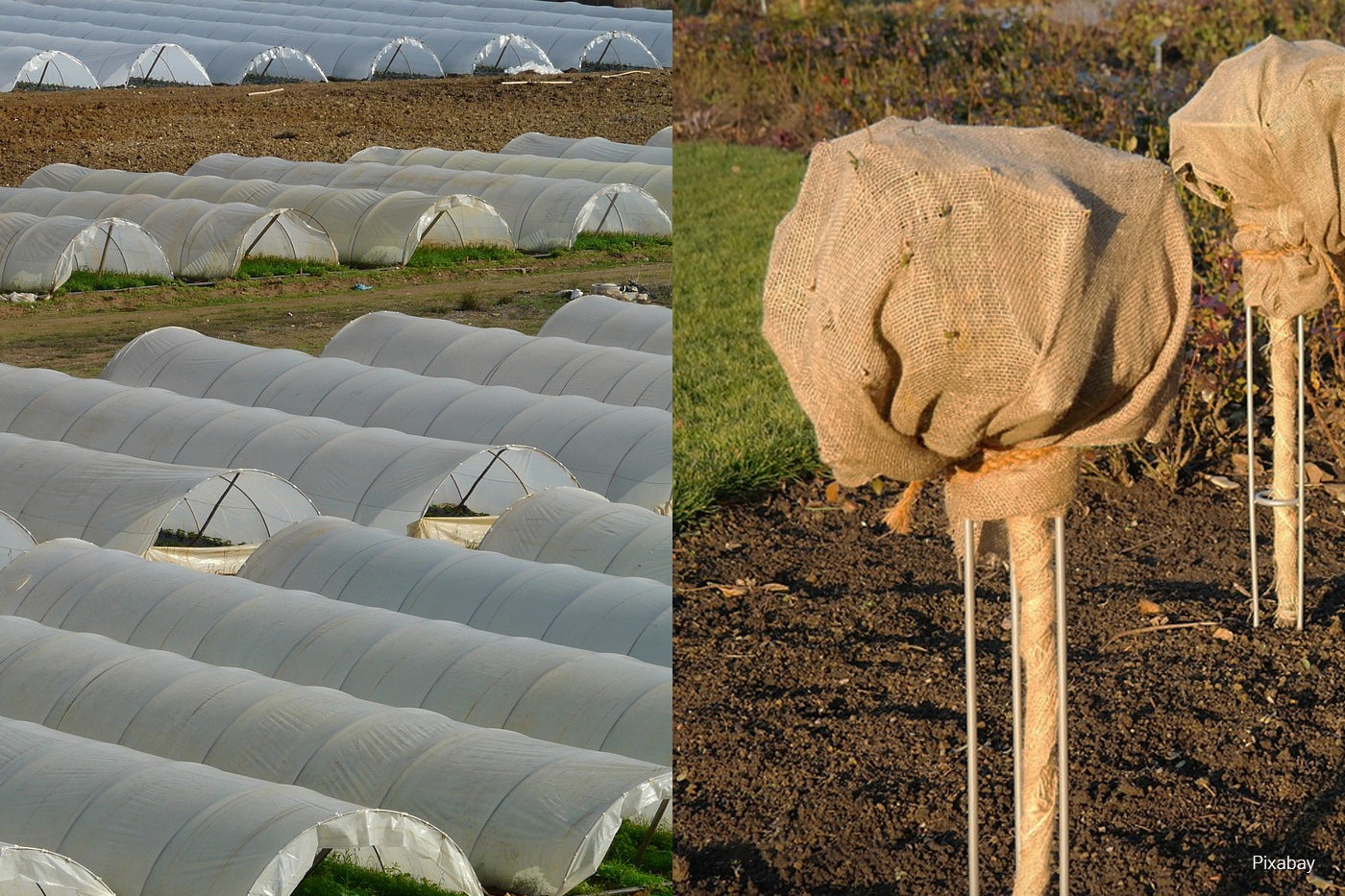Choosing between burlap fabric and plastic sheets for your garden? That’s one tough decision because both materials have their pros and cons.
Burlap fabric is made from jute, a natural material from a plant. It is good for gardening because it lets air and water pass through easily. This means your plants won’t get too hot or soggy, and it helps to keep the soil from drying out too quickly.
Using burlap is ideal to protect your garden from strong winds, heavy rain, and intense sunlight. Because it’s breathable, air and water can easily pass through, maintaining a healthy environment for your plants. This helps prevent overheating and waterlogging, reducing the risk of plant stress and disease.
Burlap also offers some insulation against cold temperatures, which can be beneficial during chilly nights or frosty mornings. Additionally, burlap can be draped over plants or used to create windbreaks, providing physical protection from pests and animals.
But burlap can break down over time, so you might need to replace it every now and then.
On the other hand, plastic is tough, cheap, and durable. As an alternative to landscape fabric, plastic sheets create a physical barrier that shields plants from external threats. These products block out wind, rain, and sunlight, providing a more controlled environment.
Plastic sheets are particularly effective at retaining moisture in the soil, reducing the need for frequent watering and helping plants withstand dry conditions. They also offer protection against frost and cold temperatures by trapping heat close to the ground.
However, because plastic sheets are not breathable, they can create a humid environment that may promote fungal diseases if not properly ventilated. Additionally, plastic sheets can be used to cover plants completely, offering protection from pests and animals that may damage or eat the foliage.
Contents []
What Factors to Consider Between Burlap and Plastic for Gardening

When deciding between burlap and plastic for your gardening needs, there are several important factors to consider. These factors are:
- Permeability
- Sustainability
- Insulation
- Aesthetics
- Mulching
Permeability: How easily air and water pass through a material will directly impact the health of your garden.
Burlap is known for its high permeability. It’s made from natural fibers that allow air and water to flow through easily. This is beneficial for plants because it helps prevent the soil from becoming too compacted and allows roots to breathe.
On the other hand, plastic is not very permeable. It creates a barrier that can trap moisture in the soil, which may lead to root rot in some plants.
Insulation: Burlap retains heat close to the ground, providing insulation during cold weather. This can be especially helpful for protecting sensitive plants from frost and freezing temperatures. Because burlap is breathable, it allows air and moisture to circulate, preventing overheating and moisture buildup. This helps maintain a stable and comfortable environment for your plants, reducing stress and promoting healthy growth. Additionally, burlap can be layered or wrapped around plants to provide extra warmth and protection.
Plastic sheets create a barrier that traps heat and creates a greenhouse effect. They help to retain warmth in the soil and air, providing insulation against cold temperatures. Plastic sheets are particularly effective at preventing heat loss during the night when temperatures drop. This can help protect plants from frost damage and promote early growth in the spring.
But, because plastic sheets are not breathable, they can trap excess moisture and heat, leading to condensation and potential issues like fungal diseases. It’s important to provide adequate ventilation when using plastic sheets for insulation.
Sustainability: Sustainability is about using resources in a way that doesn’t harm the environment and can be maintained for the long term.
Burlap is considered more sustainable than plastic because it’s made from natural materials, such as jute fibers. These fibers come from plants, so they can be grown and harvested without harming the environment. Additionally, burlap is biodegradable, which means it will eventually break down and decompose, leaving behind minimal waste.
Plastic, on the other hand, is derived from non-renewable fossil fuels and is not biodegradable. It can take hundreds of years to decompose, and even then, it may leave behind harmful microplastics that can pollute the soil and water.
Aesthetic: When it comes to gardening, the aesthetic appeal of burlap and plastic can vary. Burlap has a natural and rustic look that some gardeners find appealing. It blends well with outdoor environments and can add a charming touch to your garden beds.
On the other hand, plastic is more utilitarian in appearance. It often comes in a plain black or clear color and may not enhance the overall look of your garden. However, some gardeners may prefer the neat and tidy appearance that plastic provides, especially for more modern or structured garden designs.

Mulching: Thinking about adding mulch to your garden beds? Both burlap and plastic can be used in conjunction with mulch, but they have different effects on the soil and plants.
Burlap mulch allows air and water to penetrate the soil, which can benefit plant growth. It also decomposes over time, adding organic matter to the soil. Layered with mulch, burlap adds beauty to your garden beds.
Plastic, on the other hand, creates a barrier that prevents moisture from evaporating from the soil. While this can help conserve water, it may also lead to waterlogging and root rot if not managed properly. Additionally, plastic sheets can inhibit the growth of beneficial soil microorganisms and earthworms.
Both burlap and plastic sheets are useful in the garden but work differently. Burlap is an eco-friendly alternative to landscape fabric. It’s made from natural fibers but though widely available, it’s not as affordable as plastic sheets.
Plastic sheets create a more sealed and insulated barrier against cold temperatures. But it’s not eco-friendly, which might be a drawback for growers who want to grow their crops organically.
Which product should you use in your garden? Ultimately, your choice between burlap and plastic will depend on what’s most important for your plants.



